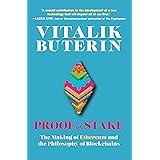A staggering 1.089 trillion Philippine pesos has reportedly been lost to corruption under the Bongbong Marcos (BBM) administration since 2023. This alarming figure, estimated by the international environmentalist organization Greenpeace in September 2025, represents a colossal drain on public funds, as highlighted in the accompanying video. It paints a stark picture of the challenges facing the Philippines, where critical resources are allegedly siphoned away from essential services and climate resilience efforts.
The Staggering Scale of Corruption Under Marcos Jr.
The sheer magnitude of the financial loss is difficult to comprehend. According to Greenpeace, the estimated 1.089 trillion Philippine pesos lost to corruption under Marcos Jr. since 2023 is a deeply concerning sum. Furthermore, approximately half of this amount, around 560 billion pesos, was reportedly lost in the year 2025 alone. Such numbers underscore an urgent need for transparency and accountability within government operations.
This massive alleged pilfering of public funds has far-reaching consequences. It deprives the nation of critical investments in infrastructure, social services, and economic development. Understanding the full scope of this financial hemorrhage is crucial for any meaningful discussion on national progress and governance under the current administration.
Climate Crisis and Stolen Funds: A Double Blow to Filipinos
One of the most devastating impacts of this alleged corruption under Marcos Jr. is its direct link to the escalating climate crisis. Greenpeace campaigner Jefferson Kua explicitly stated that this trillion pesos was “siphoned by avaricious, self-serving officials and contractor corporations from projects meant to help people cope with escalating climate impacts.” This assessment is particularly grim for an archipelagic nation like the Philippines, which is highly vulnerable to climate change effects.
The theft of climate funds at such a scale can be considered atrocious. Offenders are likened to “climate criminals” because their actions directly undermine the ability of millions of Filipinos to survive increasingly severe typhoons, rising sea levels, and extreme weather events. These stolen resources could have funded vital climate adaptation projects, early warning systems, resilient infrastructure, and sustainable livelihood programs for affected communities.
Betrayal of National Security: The AFP Modernization Deception
Beyond the environmental implications, the estimated 1 trillion pesos lost to alleged corruption under Marcos Jr. also casts a shadow over national security. The video points out that this amount is reportedly half of the 2 trillion pesos promised by the same government for the modernization of the Armed Forces of the Philippines (AFP). This discrepancy highlights a concerning gap between rhetoric and reality.
Since 2023, the BBM administration has allocated only about 102.5 billion pesos in “sure funding” or programmed appropriations for the AFP’s modernization. While there are “unprogrammed appropriations,” these are not guaranteed funds; they depend on the availability of excess revenues. This situation suggests that the Filipino people and the AFP itself may be misled by “false hopes” regarding crucial defense funding, jeopardizing the nation’s security posture amid evolving regional dynamics.
A Silenced Press and the Pursuit of Accountability
The Greenpeace article, released on September 8, 2025, brought these figures to light. Yet, as the video observes, the Philippine press reportedly refused to publish it locally for wider public consumption. This alleged suppression of critical information is deeply troubling for a democratic society. A free and independent press plays a vital role in holding power accountable and informing citizens about issues of national importance, including large-scale corruption under Marcos Jr.
When crucial reports from credible international organizations like Greenpeace are not widely disseminated, it creates an environment where alleged wrongdoings can persist unchecked. The absence of local media coverage compels concerned citizens to seek information from foreign news sources, raising questions about the state of media freedom and the accessibility of vital public interest information within the Philippines. Ultimately, the fight against corruption under Marcos Jr. requires an informed populace and a vigilant media committed to truth and transparency.







